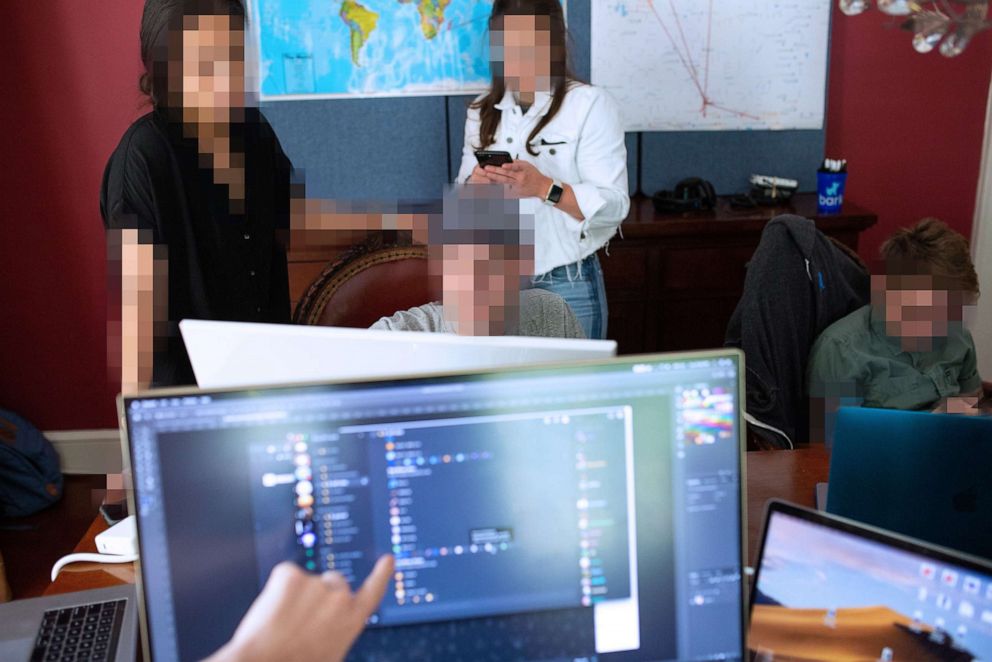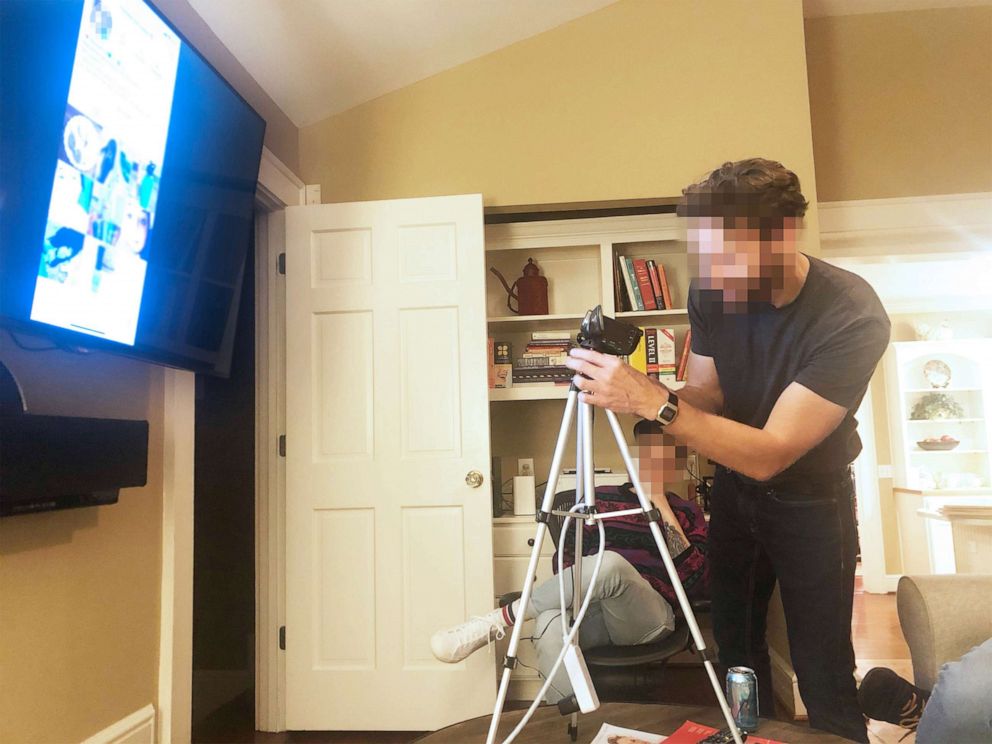I'm 37 and I pose as children online to identify sexual predators. Here's what parents should know
Parents can play a big part in keeping kids safe online and in real life.
In 2019 alone, the National Center for Missing and Exploited Children received more than 20,000 reports of suspected online enticement and unwanted explicit material sent to a child. The year before, the Pew Research Center found that almost a third of girls ages 15 to 17 said they had received unwanted explicit images online.
Sloane Ryan (who uses a pseudonym to protect her privacy) leads the Special Projects Team at Bark, a monitoring service that alerts parents when kids might be in danger online. Bark also offers content monitoring and web-filtering services to schools. In this article, she gives a behind-the-scenes look into the harrowing work of posing as an underage girl to discover possible sexual predators who abuse minors -- turning the evidence over to the NCMEC and law enforcement. She also shares what parents should know to keep their children safe.
**********
"Listen, baby, all I want is a video of you lifting up your shirt and running your hand across your stomach. You can do that for me, can't you?"
My 37-year-old self would gladly tell this person in my Instagram DMs where to go and how fast to get there, but I am currently playing the role of an 11-year-old sixth-grader who is being swiftly and methodically groomed by an online predator.
Sometimes these messages start innocently enough. Predators might say they're talent scouts or photographers or even 12-year-old girls looking to be friends with my persona. But then it's suddenly all too clear that their goal is sexual grooming. They want to fulfill their own sexual desires via video chat or they want to collect child sex abuse material (referred to colloquially as child pornography, but pornography can imply consent) to trade or sell to other people. Or maybe they want to rope her into a sadomasochistic relationship or meet up to abuse her in person or even traffic her.

While these messages still horrify me every time I get them, at Bark, the tech company where I work, we see them sent to actual kids all the time. This project is a natural extension of the work our company does on a daily basis to help keep kids safe by monitoring their online activity for potential dangers like cyberbullying, suicidal ideation, self-harm and sexual predation. Although my personas for this project may be fictitious, the kids who are being contacted by predators at this very moment aren't — and Bark does this difficult work to help parents and schools understand the terrifying reality they may face.
My personas have ranged in age, socioeconomic status, family dynamics, racial background and hair color. But the abuses they experience online are always largely the same. They are all inevitably met with a barrage of perverse requests, horrific messages and graphic images.
While it's my face and body that are manipulated — with the help of a dynamite graphic design team — to become these personas, there are several of us on Bark's Special Projects Team, which was created to dedicate time and resources to this work seeking to uncover predators. We create the fictitious tweens and teens, build out their backstories, field incoming messages, communicate in each persona's voice and identify potential perpetrators.
The work is undoubtedly taxing. We'll spend hours in Bark's Atlanta office working on this project, and then at the end of the day, we'll head home to our own families. I'll pull off the kids' clothes I wore for images and video calls with perpetrators and change back into clothes more age-appropriate for a 37-year-old. I'll turn off my work phone, I'll drive home, I'll kiss my kids good night and then I'll turn my phone back on so I can work a little more.

The truth is, a lot of these perpetrators have the same schedule I do. They go to work, come home, have dinner with their families, help their kids with homework, tuck them into bed and then log in to social media to find a child with whom to communicate.
Some nights, that child is me, an adult collecting evidence. But much more often than not, these perpetrators are sexually and psychologically abusing children without ever being in the same room as them. In some instances, conversations such as "are you happy pretty girl" can escalate to a barrage of messages from someone claiming to be 26 years old, texting "you owe me more" and who requests revealing pictures. Within as few as 30 minutes, they may already be using controlling language and behavior, possibly laying the groundwork for my persona to potentially become his next victim.
It's hard to stomach the fact that there are so many dangers like this online, and it's easy to feel overwhelmed or powerless against it. We're the first generation of parents to raise kids in the age of smartphones. I love that technology affords us access to knowledge and experiences and the ability to keep in touch with loved ones. But those same avenues are also being used to abuse children. As parents and guardians, we can make a huge difference in helping to keep our kids safe online and in real life. Here are some critical information and resources that can help.
Locking down accounts is only half the battle
Enabling privacy settings and controlling your child's access to devices are both important — but they aren't the only things you need to do to help keep your kids safe online. Privacy settings can be changed with the switch of a toggle, and making an account private does not prevent a predator from messaging a child. Someone can still DM on Instagram, for example, even if the two accounts aren't following each other or if one or both is private.
Have frequent and open conversations with your child
Life in the digital world moves fast, and it's crucial to have continuing conversations with your child about their devices, how they use them, who they're talking to and the things they see online. Make check-ins frequent and informal so they become a part of your family's day-to-day life. Many families use a tech contract to help facilitate these conversations, establish expectations and lay down ground rules.

Let your child know they can come to you for help
Every parent hopes that if their child encounters an online predator, their child will tell them. But it's not always easy for survivors to talk about what they've been through — and these conversations can be especially difficult to have with a close family member. It's important to make it clear to your children that they can always come to you. They need to know that you will love them, support them and help them, no matter the circumstance.
For more resources, visit www.bark.us/sloane-ryan-resources.
Editor's note: This was originally published on Feb. 6, 2020.
Since then, things have changed for Sloane: "After my identity was revealed and I parted ways with Bark, I took a little bit of a break for gearing back up and continuing my work in the child advocacy space. Last year, I joined the board of directors for The Cove Center for Grieving Children, a nonprofit organization that serves kids who have lost a sibling or a parent.
I also recently started SOSA (Safe from Online Sex Abuse) to continue to highlight the pervasiveness of online sex abuse and exploitation. I'm working with law enforcement across the country to identify perpetrators online. We're also in communication with legislators to lobby for support for under-resourced ICAC task forces. Additionally, we're providing education and information to minors and their caregivers and supporting efforts that prevent abuse on the perpetrator side -- there are organizations and individuals (criminal defense attorneys, etc.) who are advocating for rehabilitation before a perpetrator commits a crime. As someone who is committed to preventing and decreasing the incidences of online sex abuse and exploitation, I aim to tackle the issue from a myriad of vantage points.




